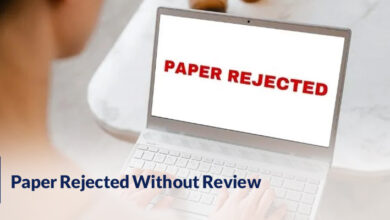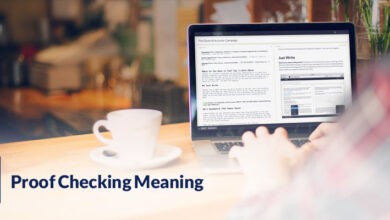Decision in process without under review

All scientists and researchers, when contemplating the submission of a scientific paper, should submit their work. But how can one publish their paper without going through the review phase?
Have you ever wondered about the inner workings of decision-making processes, especially when decisions are in process without under review phase?
If so, you are not alone! In this article, we aim to explore decisions made without following the traditional review process.
What is a decision in the process without under review status?
When you see your research paper in the decision process without under review phase, it is a significant moment in the publication process.
This status appears after the initial checks, and it means your paper is no longer under review by peers. Instead, the journal’s editorial team evaluates it behind the scenes.
They look at things like whether your paper matches the journal’s focus, its quality, and if it follows the formatting guidelines.
What are the types of decisions without review?
When you want to publish your scientific paper, several different decisions might be made with no formal review process.

You should know these differences to have a better comprehension of how your research article will proceed:
1. Desk rejection
This is the quickest path and not the one you want your paper to take. When your manuscript faces a desk rejection, it means the editor has determined it does not align with the journal’s scope or quality standards, and it has not been sent for peer review.
2. Editorial Evaluation
In the “Decision in process without under review” status, your paper is evaluated solely by the journal’s editorial team. They consider factors like relevance, originality, and adherence to guidelines. This phase is crucial in deciding whether your paper moves forward to peer review or not.
3. Technical issues
Sometimes, your paper might end up in this category due to formatting or ethical issues. The editorial team will address these problems before considering them for peer review.
Read More: How hard is it to publish a research paper?
What are the pros & cons of skipping the review?
Skipping the traditional review process in academic publishing has its share of pros and cons, which authors need to consider carefully:
Pros
· Speed
One of the most significant advantages is the time saved. Your paper can move forward more quickly without the prolonged peer review, making it accessible to readers sooner.
· Editorial control
In cases of skipping peer review, you retain more control over the content and style of your paper. You can ensure your work is presented as you envision.
· Fewer rejection risks
Traditional peer review often leads to rejection. By bypassing this step, you can avoid potential rejection and publish your work more easily.
Cons
· Quality assurance
Skipping peer review means missing out on valuable feedback and quality control. This could result in errors, omissions, or inaccuracies going unnoticed.
· Credibility
Papers that haven’t undergone peer review may be perceived as less credible by the academic community. This can impact the reputation of your work, and you’re standing as an author.
· Limited validation
Peer review serves to validate your research and findings.
Without it, your work may not receive the same level of validation and trust from readers and peers.
What are the factors influencing decision processes?
Several key factors influence the decision-making process regarding the fate of a research paper.
Knowing these influences is vital for authors awaiting the outcome of their manuscript:
· Journal’s scope
The alignment of your paper with the journal’s scope plays a pivotal role. If your paper closely matches the journal’s focus, it’s more likely to progress through the decision process.
· Quality & originality
The overall quality of your research and its originality are critical determinants. Papers with significant contributions and rigorous research methodologies often move forward.
· Editorial expertise
The editorial team’s expertise and familiarity with the subject matter also influence the decision. Their assessment of your paper’s value within the field is crucial.
· Reviewer availability
The availability of suitable peer reviewers can affect the decision process duration. Delays may occur if it takes time to secure experts to evaluate your work.
· Journal workflow
Each journal has its own workflow and publication schedule, which impacts the decision timeline. Some journals operate more swiftly than others.
· Communication
Clear and professional communication with the journal’s editorial office can influence decision processes. Timely inquiries about the status of your manuscript help maintain transparency and efficiency.
Conclusion
In conclusion, the decision in process without under review status in academic publishing is a significant juncture for authors.
It is essential to comprehend the ramifications, as well as the kinds of choices and variables that affect the process.
While there are pros and cons to bypassing peer review, the decision should be made with care.

What’s your experience with academic publishing, and how have you navigated this decision process? Share your insights below!



